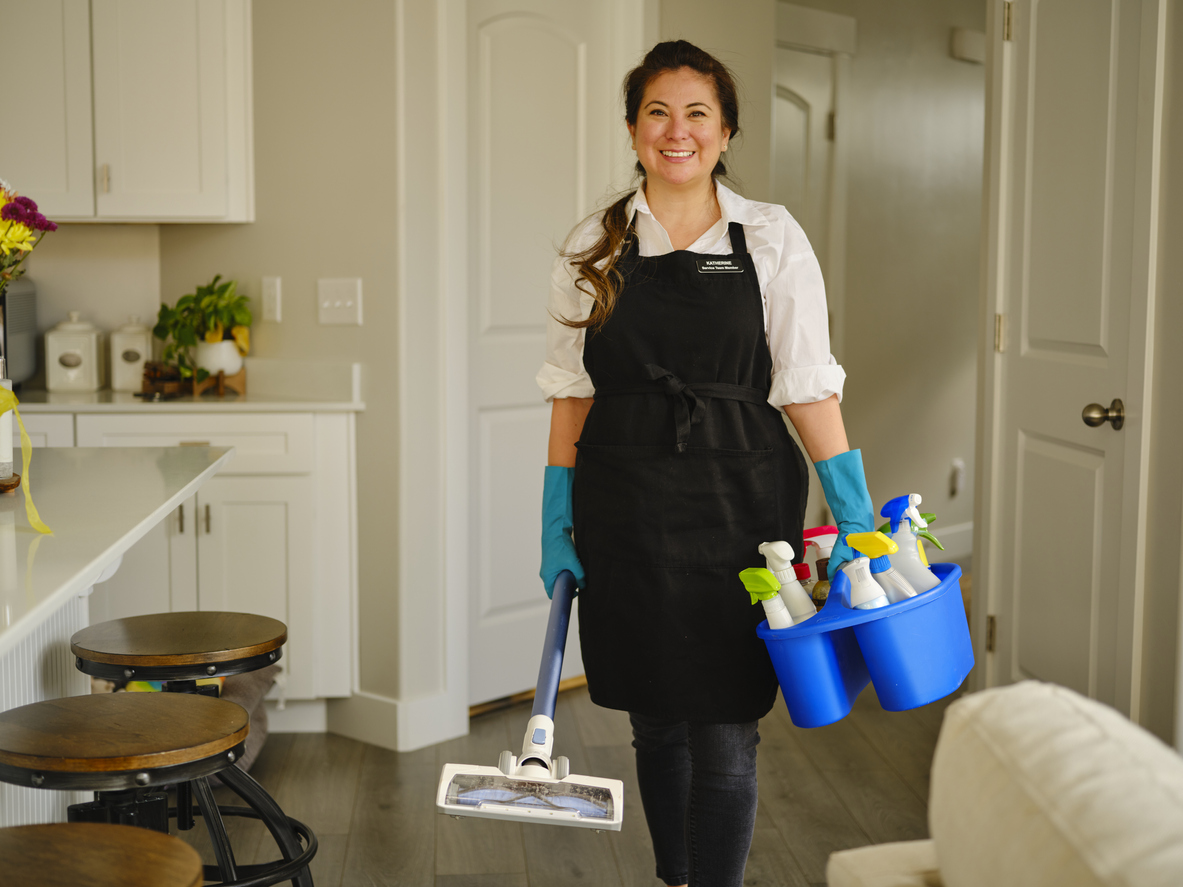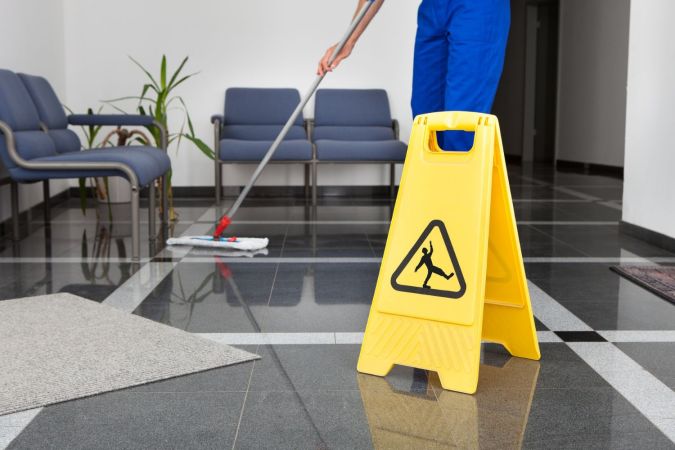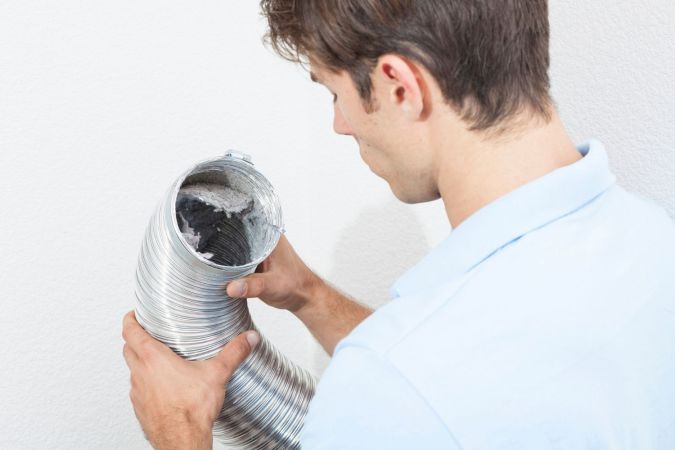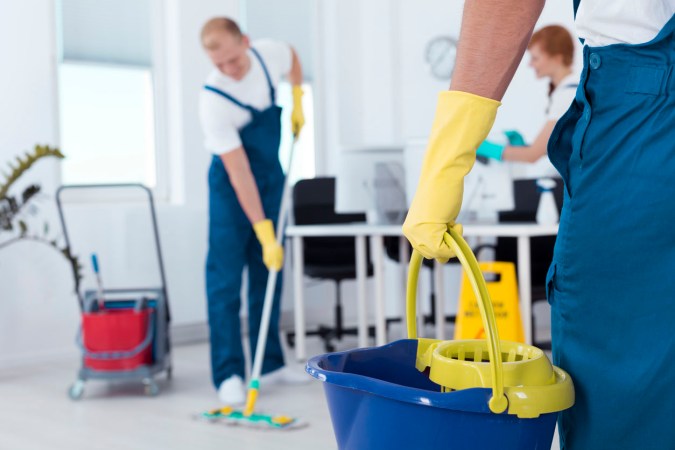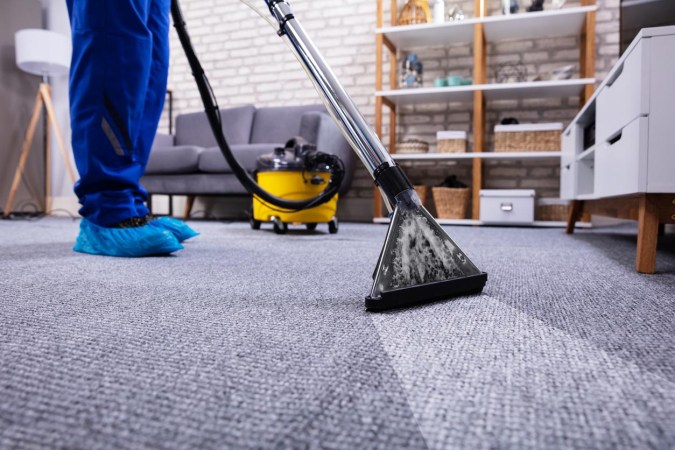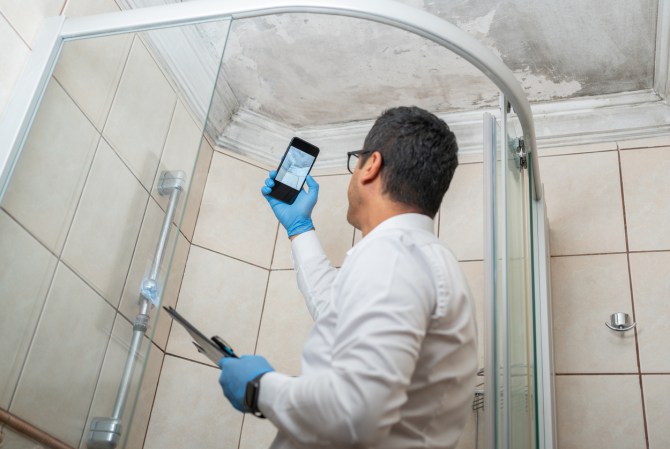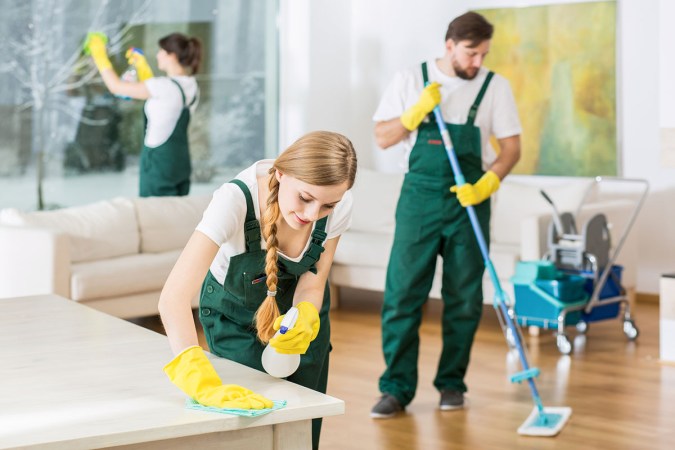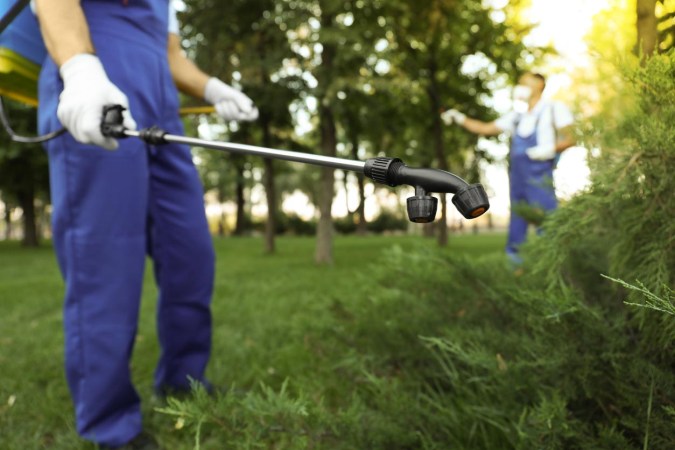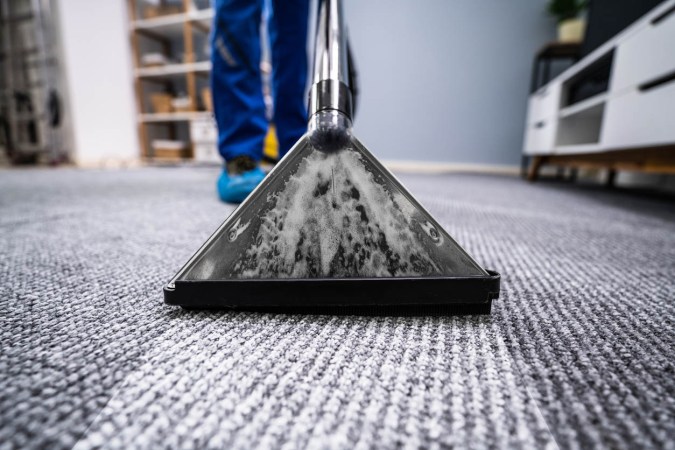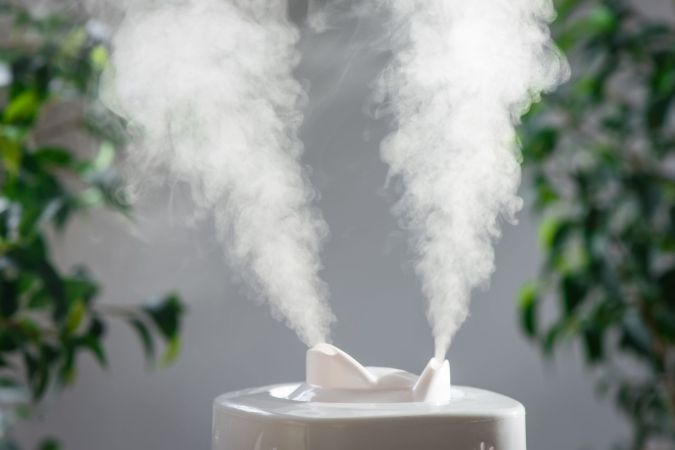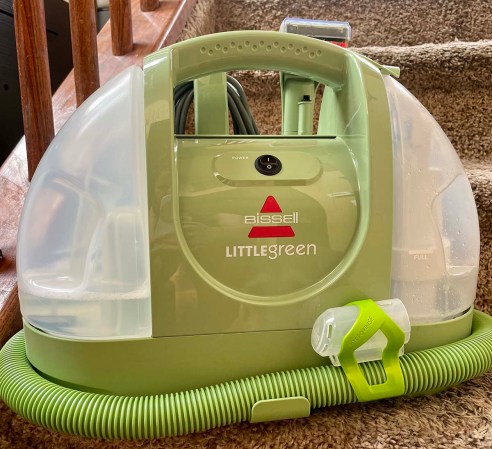We may earn revenue from the products available on this page and participate in affiliate programs. Learn More ›
Many people dread the thought of having to clean their house. But for those who do enjoy vacuuming, scrubbing, and washing, there’s potentially a lot of money to be made as a professional house cleaner.
It’s commonplace for some homeowners and renters to seek out professional cleaners to deep clean their living spaces. Launching a house-cleaning service can provide a steady source of income while also instilling a sense of accomplishment in one’s work.
Individuals who are interested in learning how to become a house cleaner will want to do their research and familiarize themselves with the top tips for finding success in this venture. Once they have this information, they can set their sights on becoming one of the best cleaning services in their geographic area.
Before You Begin…
Before diving into a professional house-cleaning business, it’s important for an individual to evaluate its advantages and disadvantages. On the upside, the field typically provides flexible working hours, the gratification of seeing immediate outcomes, and the potential for a consistent revenue stream given the regular demand. Moreover, the initial investment is often more affordable than what’s required for other enterprises, particularly for those working solo.
However, working as a professional house cleaner comes with its share of challenges. Professionals need a deep knowledge of the best cleaning products and techniques, and the work can be physically taxing. As is the case with any business, entrepreneurs must also manage finances, marketing, and any staff. Professional cleaners must also stay up to date with the latest technologies, tools, and eco-friendly products to remain competitive.
Tips for How to Become a House Cleaner
- Working for an existing house-cleaning company before setting out on one’s own can help aspiring entrepreneurs build the necessary skills and business knowledge to succeed.
- As with any business, it’s important to research local and state requirements for business licensing, registration, and other legal compliance steps.
- Marketing a professional house-cleaning business through positive word-of-mouth recommendations and a strong online presence can help bring in new and repeat business.

STEP 1: Research the skills needed to succeed as a house cleaner.
Aspiring house cleaners will want to begin by researching the various techniques and methods used in the industry. This includes understanding the proper use of cleaning agents, mastering techniques for stain removal, and learning the best practices for cleaning different surfaces. Being familiar with the tools of the trade (such as vacuums, mops, and dusters) and how to correctly use them is equally crucial. Additionally, interpersonal skills are pivotal, as cleaners often interact directly with clients. And because it’s important to complete tasks efficiently within provided time frames, time management skills are also invaluable.
“Generally, no training is required if you are planning on working for an established company,” explains Sharon Tinberg, residential home cleaning process and procedure expert for the International Sanitary Supply Association (ISSA). “The hiring company will train you in their processes and procedures. If you plan on cleaning homes yourself, as an individual, you will want to seek out some professional advice or watch ‘How To’ videos on YouTube. Cleaning a home like your mother taught you may not be profitable. Using professional processes, procedures, tools and products will increase your efficiency and improve your quality. You will also want to educate yourself regarding the proper tools and products for the unique surfaces needing to be cleaned today so that you do not damage a $16K countertop in your first week of business.”
STEP 2: Apply for an entry-level house-cleaner position with a house-cleaning business to gain experience in the field.
Gaining hands-on experience with an established cleaning business offers aspiring self-employed house cleaners the opportunity to observe seasoned professionals at work, learn the nuances of client interaction, and become familiar with the tools and products commonly used in the industry. These house-cleaning jobs often provide mentorship and training for cleaners, allowing newcomers to refine their skills and avoid common mistakes.
Feedback received from an entry-level cleaning job, whether from supervisors or clients, can help shape a cleaner’s approach to the profession. This experience can also accelerate the learning curve and boost the credibility of a professional when they decide to branch out on their own.
“The opportunities available to a 5 star cleaning employee in this rapidly growing industry is endless,” says Tinberg. “There are numerous cleaning services who employ a staff of 100 to 200 people and some have as many as 10,000. These companies require a multitude of levels of management and many of the top levels came from cleaners who were promoted again and again. It is one of the few growing industries that usually does not require any education to enter but offers endless growth potential with the right company.”

STEP 3: Take advantage of on-the-job training, including safe chemical handling, disease prevention, and general cleaning guidelines.
On-the-job training is indispensable for professional house cleaners. Proper knowledge about the properties and combinations of cleaning chemicals can prevent accidents and ensure a healthier environment.
It’s also important for house cleaners to understand disease prevention through techniques that deter the spread of bacteria, viruses, and other pathogens, including the effective use of disinfectants. Finally, learning general cleaning best practices can improve the quality of service.
STEP 4: Sign up for classes to learn about the specifics of running a cleaning business.
While hands-on cleaning skills are undoubtedly vital, running a business requires different knowledge and abilities. Signing up for business classes can equip aspiring entrepreneurs with the tools they need to navigate the challenges of the industry. Business courses often cover essential topics such as financial management so business owners can effectively budget, track expenses, and forecast profits. Business owners may also learn about marketing strategies for the cleaning sector, which can help them learn how to attract and retain clients in a competitive market. Legal matters, from obtaining necessary licenses to understanding liability issues, are also frequently addressed.

STEP 5: Look into local requirements to run a business and apply for any applicable licenses.
Each state or local jurisdiction has its own unique requirements for running a business, especially one that enters private homes and deals with chemicals. At minimum, however, most areas require all entrepreneurs, regardless of the service they provide, to register for a business license. Before setting the wheels in motion for a house-cleaning business, entrepreneurs will want to research local business codes, zoning regulations, and any sector-specific stipulations.
While starting a house-cleaning business does not typically require any specific certification, it can be beneficial for business owners to sign up for specific training and certifications, especially concerning the safe use of cleaning chemicals or waste disposal. One such example is the American House Cleaners Association’s Professional Cleaning Provider’s Course, though there are others for entrepreneurs to consider. Staying on top of best practices and obtaining relevant certifications can help professional cleaners stand out from competitors and provide additional assurance to clients.
STEP 6: Name your cleaning business and get a business insurance policy.
A well-chosen name for a cleaning business can convey professionalism and reliability. It will need to resonate with the target audience, be easy to remember, and stand out among competitors. Once a name has been chosen, the business owner will need to check its availability and register it to ensure exclusive use and prevent legal complications.
Securing a policy from one of the best small-business insurance companies (such as NEXT Insurance or Progressive Commercial) is another important step for an aspiring business owner to take when launching a business. Given the nature of the work, cleaners sometimes find themselves in scenarios with potential liabilities—whether it’s accidental property damage, injury to a client, or issues related to employee conduct. A comprehensive insurance policy can protect a business from unforeseen financial setbacks, as well as lend credibility. Cleaning-business insurance costs will need to be included in an entrepreneur’s operating budget.
STEP 7: Purchase cleaning supplies and equipment for your business.
The choice of products and equipment purchased for a home-cleaning business can significantly increase efficiency and the overall satisfaction of clients. Entrepreneurs will want to start by purchasing basic cleaning agents, such as disinfectants, detergents, and specialty solutions for various surfaces. Prioritizing eco-friendly and nontoxic products can also appeal to environmentally-conscious clients.
In terms of equipment, house cleaners will want to invest in high-quality tools including vacuums, mops, brushes, and microfiber cloths. For those looking to offer specialized services, steam cleaners or carpet-cleaning machines may be worth considering. Finally, an organized transportation system, such as a van or cart, can make it easier for a house cleaner to move supplies from one location to the next.

STEP 8: Set your rates and come up with a marketing plan.
When setting house-cleaning prices, entrepreneurs will want to research local market rates, factoring in the depth and breadth of services, expertise, and the specific needs of target clients. While pricing will need to be competitive with that of other businesses in the area, it will also need to reflect the value offered, cover operational costs, and ensure profitability.
House cleaners will also want to keep in mind that rates will also vary based on services offered. For example:
- The typical range for house cleaning costs is between $90 to $600, with a national average of $170.
- The cost for deep cleaning a house can run between $200 and $400 and depends on the size of home and depth of cleaning required.
- Specialized services also come with their own rates. Upholstery cleaning costs, for instance, average $172 with a range of $119 to $231.
- Move-out cleaning costs between $110 and $650, averaging around $360.
Once house-cleaning rates are established, it’s time for the individual to explore marketing options. A strong online presence—including a user-friendly website, active social media profiles, and targeted web ads—can increase visibility. However, traditional marketing methods, such as flyers, house-cleaning business cards, and word-of-mouth referrals, still hold considerable sway, especially in local communities. Offering promotions or loyalty programs can also incentivize repeat business and referrals.
STEP 9: Consider working with a business registration or registered agent service to get your cleaning business up and running.
Navigating the legal requirements of starting a business can be daunting, especially for first-time entrepreneurs. The best LLC services, otherwise known as business registration or registered agent services can help streamline this process (consider top options like LegalZoom). These providers specialize in handling the administrative aspects of launching a business, ensuring that all necessary paperwork, permits, and licenses are appropriately filed and maintained. A registered agent also acts as an intermediary who can receive and handle legal documents on behalf of the business. Their expertise can help business owners avoid common pitfalls, stay compliant with regional regulations, and understand any changes to laws that might affect operations. By working with professional business services, entrepreneurs can focus on the core aspects of their cleaning business instead of worrying about the legal and administrative side of things.
Establishing a cleaning business goes beyond mere skill. Complying with local regulations, investing in the right tools, and crafting a solid marketing strategy are just a few key steps for a business owner to take to start down the path to success. By following the above steps, aspiring house cleaners can not only establish a reputable cleaning business but also ensure its lasting success in the marketplace.

